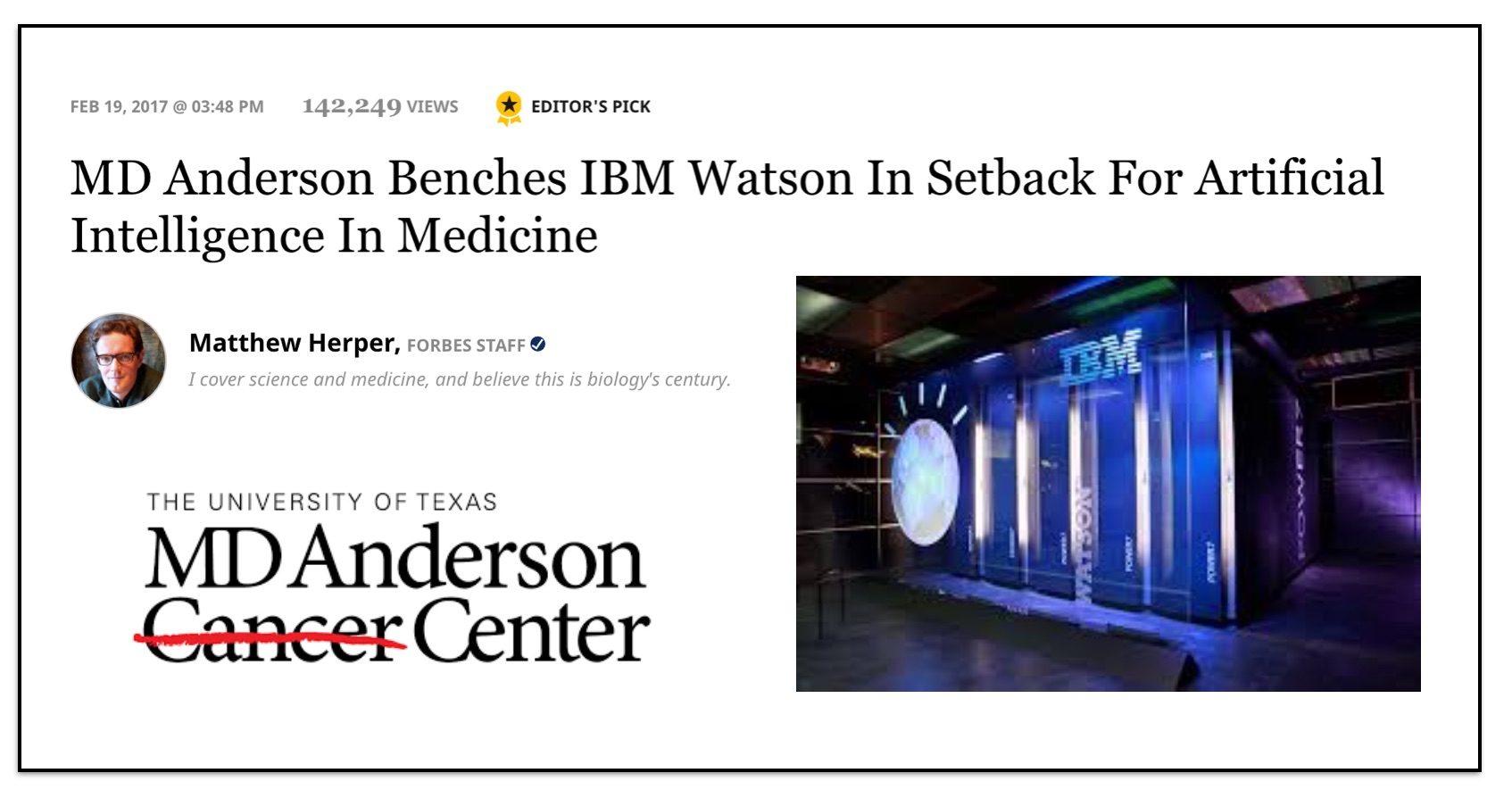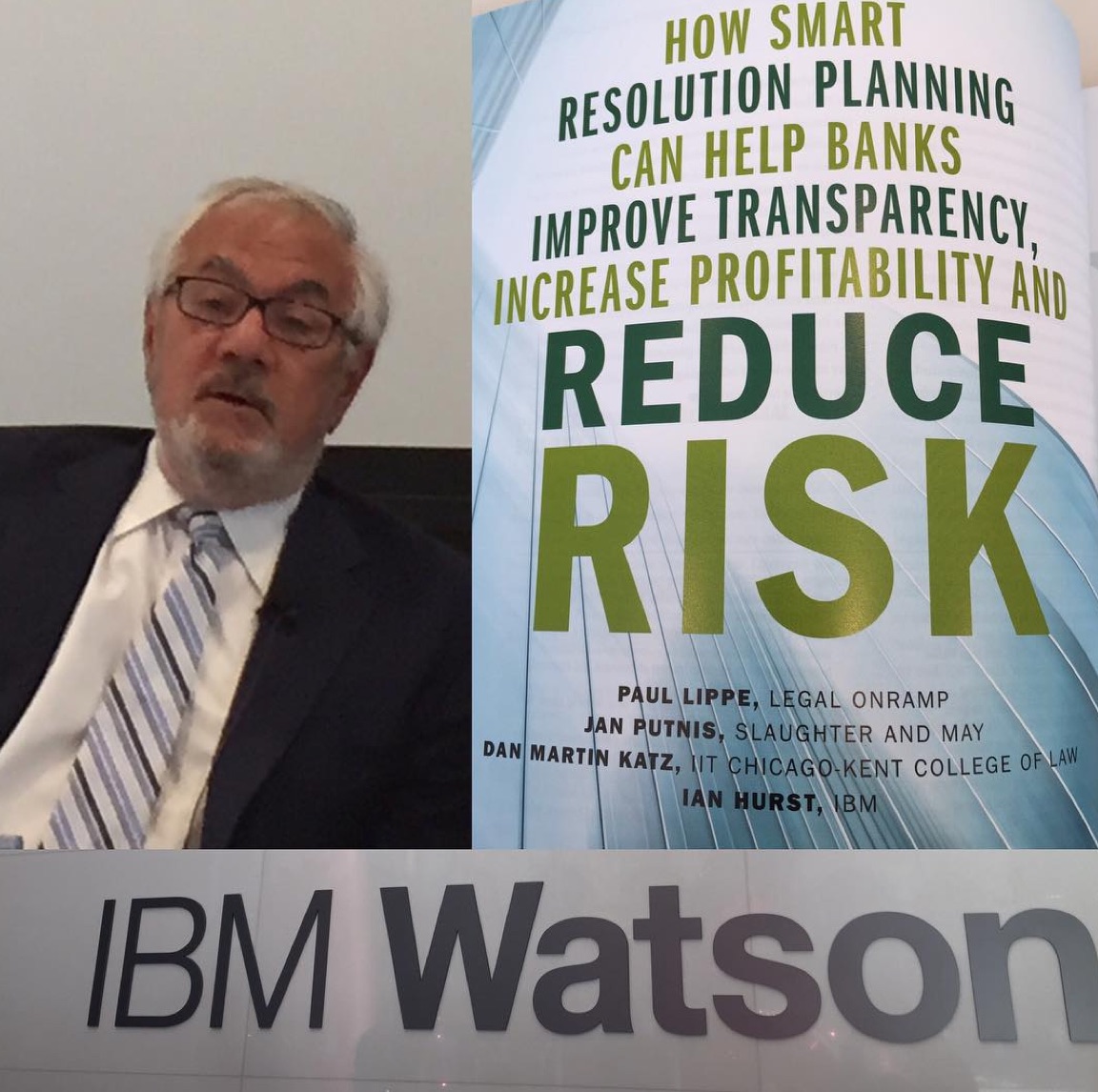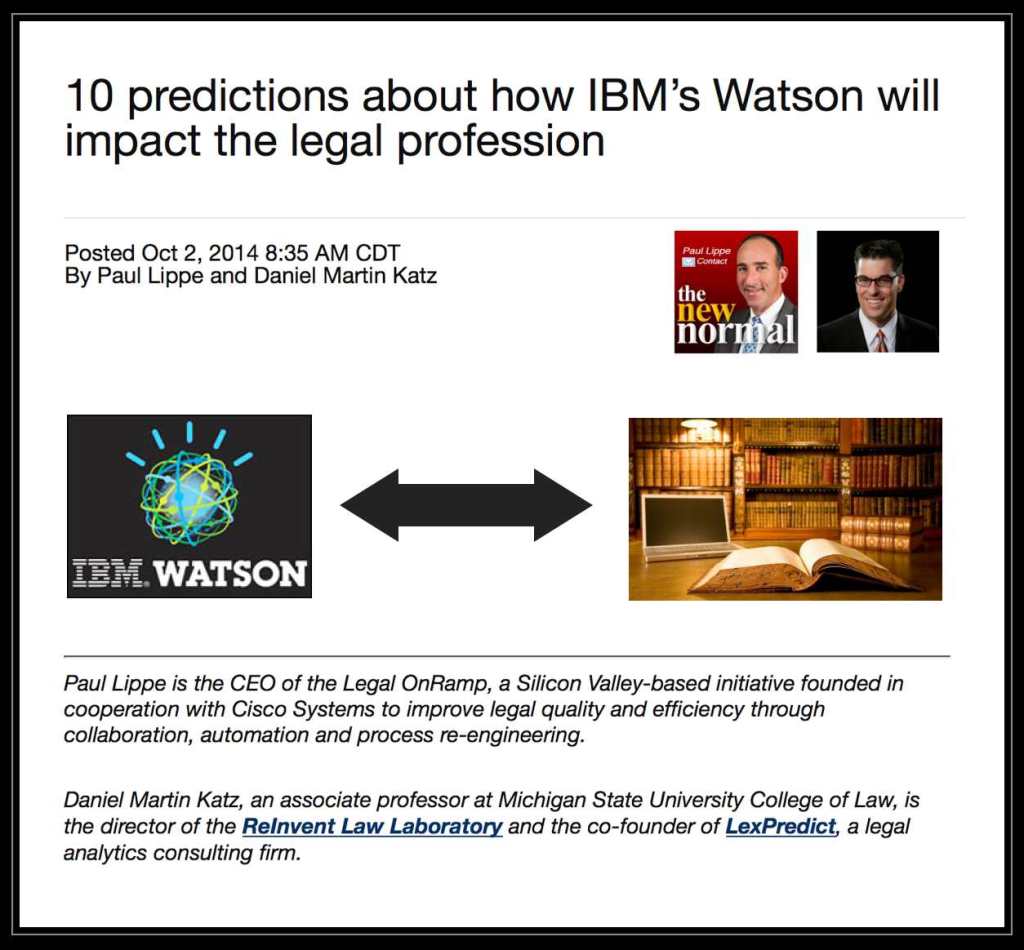 Not sure this is actually a “set back for AI in Medicine.” Rather, long story short — it ain’t 2014 anymore … as we discuss in our talk – Machine Learning as a Service : #MLaaS, Open Source and the Future of Legal Analytics – what started with Watson has turned into significant competition among major technology industry players. Throw in a some open source and you have some really strong economic forces which are upending even business models which were sound just three years ago …
Not sure this is actually a “set back for AI in Medicine.” Rather, long story short — it ain’t 2014 anymore … as we discuss in our talk – Machine Learning as a Service : #MLaaS, Open Source and the Future of Legal Analytics – what started with Watson has turned into significant competition among major technology industry players. Throw in a some open source and you have some really strong economic forces which are upending even business models which were sound just three years ago …
From the story — “The partnership between IBM and one of the world’s top cancer research institutions is falling apart. The project is on hold, MD Anderson confirms, and has been since late last year. MD Anderson is actively requesting bids from other contractors who might replace IBM in future efforts. And a scathing report from auditors at the University of Texas says the project cost MD Anderson more than $62 million and yet did not meet its goals. The report, however, states: ‘Results stated herein should not be interpreted as an opinion on the scientific basis or functional capabilities of the system in its current state’….”



